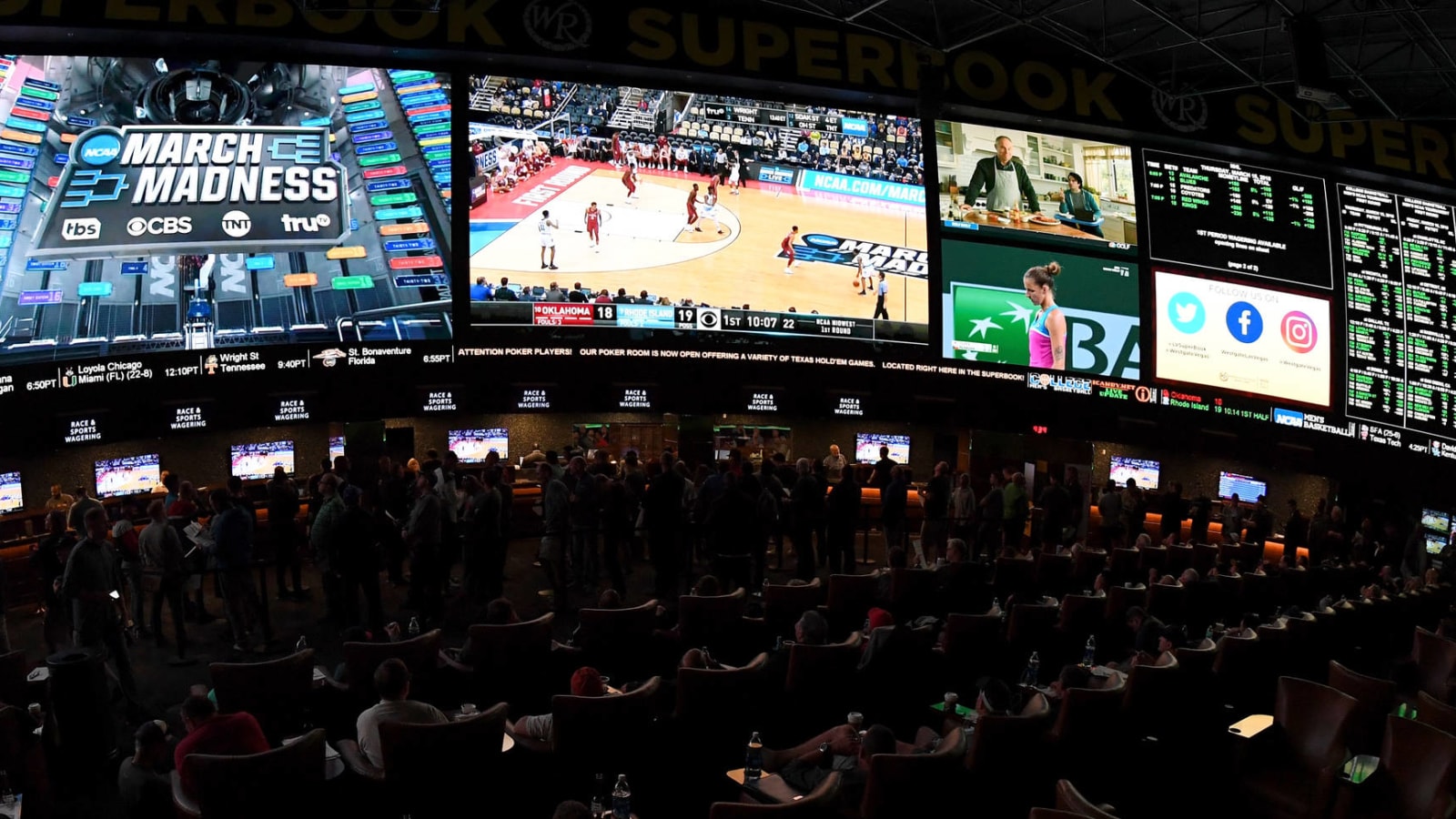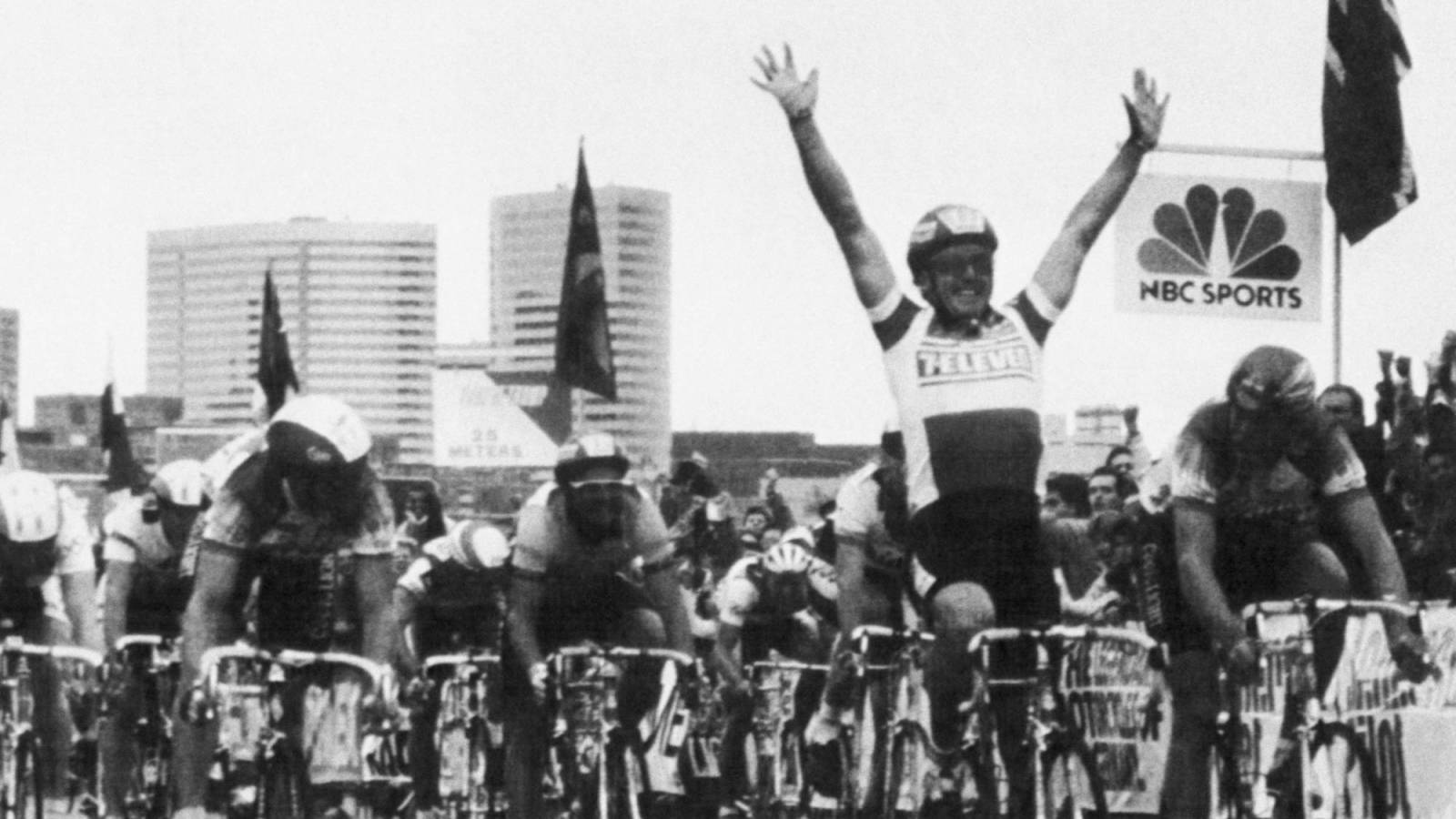
Sports & Politics Intersect: Leagues scramble as the right to gamble returns to the states
"I think everybody who owns a top four professional sports team just basically saw the value of their team double, at least." - Mark Cuban, Dallas Mavericks owner
On Monday, the Supreme Court ruled 6-3 that the Professional and Amateur Sports Protection Act of 1992 violated the Tenth Amendment and was therefore unconstitutional. The strike down effectively means that it's up to the states to decide whether they want to legalize gambling.
The reaction from the sports world has varied. While all the major sports leagues initially opposed striking down PASPA, they issued similar statements following the verdict that touted the integrity of their respective games while calling for a unified federal framework for sports betting.
The states' reactions have also varied. New Jersey, who initially challenged the constitutionality of PASPA, is set to have legalized gambling by June 7. Delaware is also aiming for a June deadline. Elsewhere, state leaders are making the case for why they should follow New Jersey and Delaware's lead — in Kentucky, sports betting is being sold as a way to fund public pensions, while Ohio Attorney General and gubernatorial candidate Mike DeWine is urging lawmakers to jump on the opportunity. Legalizing sports betting will be a more complicated for states like California, which will require a constitutional amendment.
The big winners here are the big sports leagues — though only the NHL's Gary Bettman was willing to acknowledge the upside to the court's decision. Despite their support of PASPA, the leagues have already floated the idea of passing an "integrity tax" that would compensate them for essentially providing the content that people would be betting on. It's also worth noting that the MLB, NHL, and the NFL's Jerry Jones and Robert Kraft partially own fantasy sports site DraftKings, which has recently been pivoting to sports betting. The ruling could also lead to an increase in viewership. According to Sports Illustrated, the average non-gambling football fan watches 16 games per season. For gamblers, that number jumps up to 35.
That last figure is good news for some of the smaller sports leagues. Legalized gambling could be a boon for leagues like the WNBA and for esoteric sports like horse racing. The SCOTUS ruling will also be good for the bottom line of esports and media companies alike.
What does this all mean for sports fans? Not much, really. People have been betting on sports since time immemorial — the 1919 World Series, anyone? — despite its illegality. After all, wired sports fans will always claim to know a guy who knows a guy that knows a bookie.
The SCOTUS ruling will also be consequential in realms other than sports. Because PASPA was struck down on Tenth Amendment grounds — a law that's all about state's rights — it’s a good bet that California will cite this ruling as part of its likely eventual defense of the California Values Act, the so-called sanctuary bill current under attack by the Trump administration and his supporters. The same could be said of states who have legalized the use of recreational marijuana. So rejoice, stoners and gamblers.
Need to know now:
Tepper becomes new Carolina Panthers owner - Hedge fund giant David Tepper agreed to purchase the Carolina Panthers from disgraced franchise founder Jerry Richardson. The nearly $2.3 billion price tag shattered the record for NFL franchise sales , previously held by the Buffalo Bills and slightly higher than that of the NBA’s Houston Rockets last year.
Tepper himself is no stranger to the NFL , having bought a five percent share of the Pittsburgh Steelers in 2009. But he stands out compared to the rest of his ownership brethren as a staunch critic of President Trump, who infamously put the league in his crosshairs last fall. (None of the handful of owners who have spoken out against Trump have been as colorful in his critiques.)
While it’s easy to speculate on Tepper’s return of investment based on viewership and the status of legalized gambling, it’s more difficult to know when there will be such ROI on Bank of America Stadium as the team’s long-time home has $75 million in city funds earmarked for renovations. Meanwhile, the sale doesn’t mean that the Richardson investigation is over — far from it — as the NFL may still decide to punish the Panthers a la the New Orleans Saints and ‘Bountygate.’MSU reaches massive settlement with Nassar victims - Michigan State University announced that it has agreed to a $500 million settlement on the lawsuits filed by 332 victims of former sports physician Larry Nassar. The settlement money won’t be divided evenly based on multiple factors, but $425 million will be set aside for those who directly filed suit against the school and $75 million will be dedicated for future claimants. Interim university president John Engler spoke about the settlement with NPR, saying he thinks that MSU will “be a leader in the nation in terms of dealing with sexual misconduct.”
The settlement doesn’t put an end to the challenges ahead, notably the ongoing debate in the state legislature over sexual assault bills that call for extending the statute of limitations and allowing for retroactive lawsuits for such cases. Several special interest groups have come against such proposed bills. One thing is for certain, and that’s the role insurers will play in in the settlement as they will demand that the school honors its commitment to make reforms.Israeli soccer club changes name to honor Trump - The Beitar Jerusalem Football Club became Beitar Trump Jerusalem, an homage to the U.S. president for the Trump administration’s controversial decision to move the American embassy to Jerusalem.
Qatar loves the Caps? - Washington Capitals fans may be fuming about the team’s two home losses in the Eastern Conference Final, but thanks to Qatar, at least they were able to use the Metro beyond its normal shutdown time after Games 3 and 4. Why is the tiny Middle Eastern nation paying for an extra hour of train service? Some speculated it’s not out of diplomacy.
Trump’s autographed football led to White House staffer’s departure - Cliff Sims, a special assistant in the White House, was caught in the crosshairs of chief of staff John Kelly after a football signed by President Trump during the Crimson Tide’s White House visit became a ‘whodunit’ at 1600 Pennsylvania Avenue. Yeah, it’s weird.
Knicks are lone NBA team with predominantly black leadership - The hiring of David Fizdale as the 26th head coach of the New York Knicks highlights a rarity not just in the NBA, but all of North American sports. The Knicks are the only team where its president (Steve Mills), general manager (Scott Perry) and head coach (Fizdale) are all African-American, with more black Americans filling executive positions in the franchise.
WNBA’s arrival in Las Vegas could be gateway for NBA franchise - When the WNBA’s Aces (previously the San Antonio Stars) were bought by MGM Resorts and relocated to Las Vegas last fall, it was because the company knew that the NBA has had its eyes on Sin City.
Beckham-led group cause of Miami MLS stadium delays? - The Miami MLS expansion bidding group, fronted by soccer legend David Beckham, has taken so long to put together a proposal to build a new stadium on a city-owned golf course that the lease won’t meet a public vote until November as opposed to August, as promised.
Pence gifted Super Bowl tickets by Bob McNair - Vice President Mike Pence, whose walkout of the October game between the San Francisco 49ers and Indianapolis Colts last October made headlines, was not only given tickets to that game , but was given tickets to Super Bowl 52 by Houston Texans owner Bob McNair.
This week in sports and politics history: Trump briefly challenges the Tour de France with his own racing event

"One of the biggest reasons we came was that Trump was the sponsor. With a man like him, we knew it would be good." - Jan Gisbers on why he brought his team, PDM, to compete in Tour de Trump
It all began as a love story. Not between a man and a woman or any other combination of two human people, but between a man and his name and the perceived fame and money that would come along with it. This is how Tour de Trump was born, and, well, how it came to an end.
The late ‘80s saw a growth in American interest in competitive cycling after Greg LeMond became the first from the U.S. to win the Tour de France. With the added attention and a nudge from Billy Packer, Trump decided to invest in what would become the biggest race in the country with the second highest purse in the world, after the Tour de France.
The race would go through five states and (naturally) end right in front of the Trump Plaza in Atlantic City.
The $250,000 purse would attract some of the sport’s biggest names, with two of the top three racing teams in Europe deciding to skip the Tour de Spain to race in America. NBC provided four hours of coverage of the race, which was moderately successful all things considered.
However, the race would not end without controversy. Many of the people who showed up at the finish of the first leg of the race were there with signs protesting Trump, who was in the midst of several bad investments and business deals while going through a public divorce. In the final leg of the race, Eric Vanderaerden took a wrong turn following a motorcycle and lost about 1:20, causing him to finish third overall in a race he felt he could have won.
Trump’s involvement with the race would only last a year because of the mounting debt that was collecting from several business deals. The race itself would last five more years, and still remains as one of the most bizarre stories about Donald Trump business deals.
More must-reads:
- Mark Cuban takes swipe at MLB after sports wagering ban is lifted
- Robert Kraft being deposed in Kaepernick collusion case
- The '100 catches in an NFL season' quiz
Breaking News
Customize Your Newsletter
 +
+
Get the latest news and rumors, customized to your favorite sports and teams. Emailed daily. Always free!

